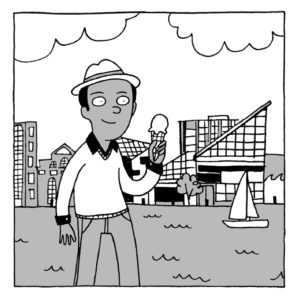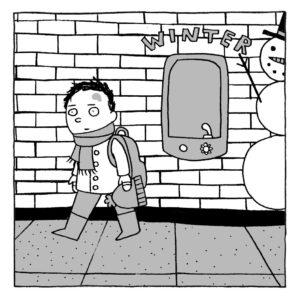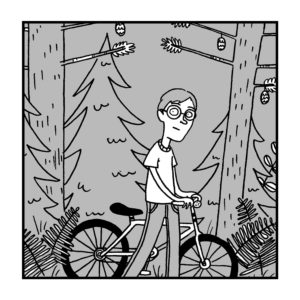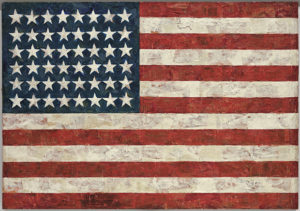
Much as I love early-’80s Genesis and Phil Collins in general, I can’t really defend “Illegal Alien.” I’ve tried. Genesis was then a tight little art-rock machine with its eyes on the mainstream, and Collins and Tony Banks were in the right midst of their deep fascination with criminal activity (“Robbery, Assault & Battery,” “Who Dunnit,” “Home By The Sea,” etc.) “Illegal Alien” was just the one where Collins could really indulge his penchant for offensive caricature and grandstanding theatrical stereotype; in this case, a drunk Mexican willing to pimp his sister to get him to America. I still think that now is the time for somebody to do a cover version, and sure, I’d like that somebody to be me, but I’ve never found musicians crazy enough to accompany me. Something about their public reputations, I think.
So, yes, I acknowledge it’s a nasty song, an unconscionable song — even if it isn’t exactly a bad song; it’s got Collins, Banks, and Mike Rutherford on it, applying their considerable musical talents to problematic material. (The video is even worse, or, if you the kind of person who likes to collect racist artifacts for kitsch value, way better.) Randy Newman used to do this kind of thing all the time, although his touch was much lighter and he’s never exactly been a corporate rocker, so we let him get away with it. If you take the long view, you can see “Illegal Alien” as the most extreme version of a practice popular with many of our Seventies heroes: phony Latin numbers, often sung in crummy South Of The Border accents. All the Rock and Roll Hall of Famers did it — Jackson Browne with “Linda Paloma”, Billy Joel on “Rosalita’s Eyes” and “All You Wanna Do Is Dance”, Carole King on “Corazon” and the Fantasy album, many, many others. Hell, Paul Simon was down by the schoolyard with Julio and ripping off “El Condor Pasa” long before he pirated anything from Africa. Lou Reed, Donald Fagen, Dylan, all the legendary Jewish-American urban storytellers; none of them could resist a little pinch of Latin appropriation.
Me neither. We’re supposed to be in a more sensitive era where we’re all far beyond finding something like “Illegal Alien” permissible, but seriously, have you looked at the news lately? Most musicians only appropriate stuff they respect, and want to be like, and that goes double for Phil Collins, who, in 1982, was a guy in a prog rock band desperately searching for some cool. I’ve been doing Latin fakes even since I started writing music: there’s “Go Back To West New York”, and “WFMU”, and “Robert Menendez Basta Ya”, and many others that haven’t ever been a regular part of the repertoire. Are these my best songs? Well, no, but they’re sure fun to play live. Latin rhythms don’t come naturally to me, but neither do any others. If I’m going to play music at all, I’ve got to swipe from somewhere, so it may as well be a tradition that excites me.
“Every Day Is Children’s Day” is 100% Latin fake. The programmed drums are copied into the track from a MIDI folder called, I kid you not, “Cuba”; there are great conga sounds in there. That’s me on bass, too, attempting the sort of line I remember from the Gloria Estefan records I used to dance wildly to at people’s Bar Mitzvahs before getting escorted off the floor by concerned adults. The “Oh, Miami” chant — much like the TripStar concept in the accompanying story — is a tip of the cap to Fagen, who isn’t Latin-American, but he sure is from Jersey. Somehow it all works for me: I really do love this one, just like (and probably because) I really do love Latin music. If Dierks Bentley can invent an entire Southern outlaw mythology for his listeners based on vague recollections of The Dukes Of Hazzard, I feel I’m allowed to conjure Miami Beach via Ricky Ricardo. Once or twice, only, I promise. If by chance you’re not offended by this, trust me, there’s worse to come. Wait until we get to the San Juan song — that’s about as far down the road toward “Illegal Alien” as any North American ever ought to go.








